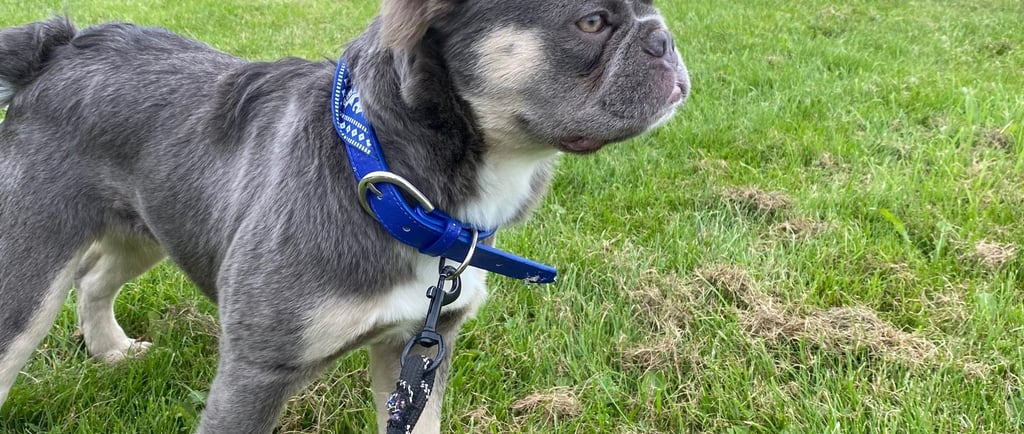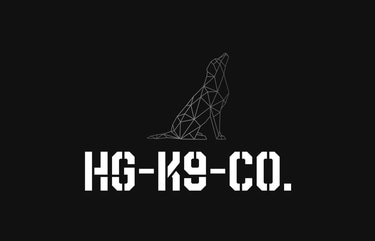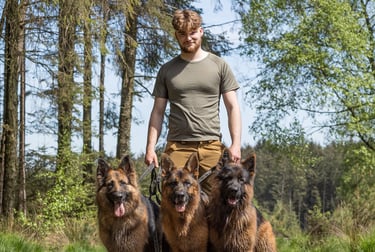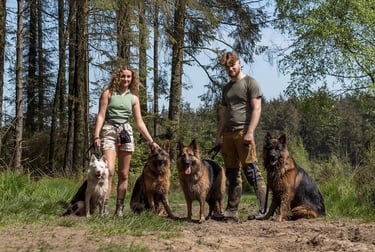The Importance of Puppy Training
Written by Jack Smithson, head trainer at HGK9CO, Harrogate K9 Company. Offering Dog Walking & Daycare in Harrogate and Dog & Puppy Training in Harrogate & North Yorkshire.
Building a Strong Foundation: The Essential Aspects of Puppy Training
Embarking on the journey of puppyhood comes with the exciting responsibility of shaping a well-behaved and well-adjusted companion. Puppy training extends beyond the basic commands; it's a holistic approach to creating a canine citizen. Here are key elements to consider:
1. Exposure to Different Environments: Beyond the Basics
Puppyhood is the perfect time to expose your furry companion to diverse environments, including pubs, restaurants, town centers, and roadsides. However, a crucial aspect is controlled exposure. Resist the urge to let every person shower your pup with attention. Politely inform them that you're in training. This prevents your puppy from developing the habit of running to every person, laying the groundwork for solid recall and leash manners.
2. Controlled Interaction with Dogs: Fostering Neutrality
Introduce your puppy to environments with numerous dogs but control their interactions. Not every dog encounter should result in a meet-and-greet. By strategically limiting exposure, you desensitize your puppy to the presence of other dogs, promoting a neutral response. This helps in recall training and leash walking, preventing your pup from thinking it must approach every dog it encounters.
3. Socialization with Caution: Quality Over Quantity
While socialization is crucial, quality surpasses quantity. Exposing your puppy to numerous dogs may inadvertently lead to encounters with aggressive ones. Instead, focus on controlled introductions to well-behaved dogs. This approach ensures positive socialization experiences, reducing the risk of your puppy developing a habit of approaching every dog it sees.
4. Recall: A Lifelong Command
Train recall early and consistently. Practice in various environments, gradually increasing difficulty. A reliable recall is a powerful tool, preventing your puppy from wandering off into potentially dangerous situations.
5. Leash Manners: Walking with Purpose
Teach your puppy to walk on a loose leash from the start. Consistent, controlled exposure to distractions, coupled with positive reinforcement, establishes good leash manners. This foundation helps prevent pulling and reinforces the importance of walking calmly in various settings.
6. Crate Training: Security in Unfamiliar Spaces
Crate training remains a valuable skill. Beyond home comfort, it prepares your puppy for situations like vet visits, car travel, or shelter stays. This instills a sense of security and calmness, ensuring your puppy remains composed in unfamiliar surroundings.
In conclusion, puppy training is a multifaceted journey that extends beyond basic commands. By thoughtfully exposing your puppy to different environments, controlling interactions, prioritizing quality socialization, and focusing on key commands, you lay the groundwork for a well-adjusted and disciplined companion. This early investment in training pays dividends in the form of a harmonious and fulfilling relationship throughout your dog's life.






